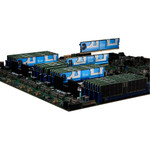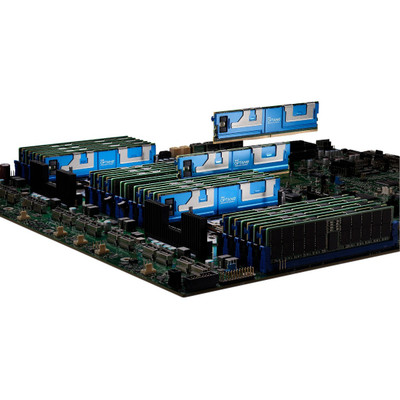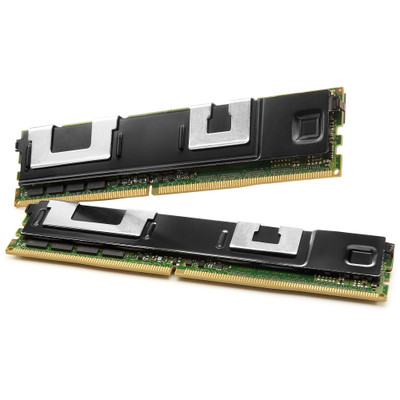Memory technology has not kept up with the innovations made in CPU and solid state drive (SSD) technologies, which limits what enterprises can achieve with ever-increasing dataset sizes using their current data center and cloud infrastructures. These datasets are highly valuable to organizations undergoing digital transformation and seeking to build better customer experiences, increase operational efficiency, create new business models, and innovate in a rapidly changing world.
Keeping large pools of data on DRAM can help accelerate computing workloads, but DRAM is expensive, volatile, and limited in capacity. And while SSDs are less expensive than DRAM and able to store large amounts of data, they are slower to send and receive data from the CPU.
Intel Optane persistent memory (PMem) bridges the gap in memory technology as an innovative new tier. It offers the best of both DRAM and SSDs in the memory-storage hierarchy to provide a unique combination of affordable, high-capacity memory and data persistence. Intel Optane PMem helps deliver fast insights from large datasets by maintaining larger amounts of data closer to the processor, while reducing the higher latency of fetching data from system storage.
Get Actionable Insights Faster
Now in its third generation, Intel Optane PMem offers more innovations to extract actionable insights from data. Available in 128, 256, and 512 GB DIMM modules, Intel Optane PMem 300 series delivers up to 4 TB of memory per socket, enabling up to 6 TB of total memory per socket on Intel Xeon Scalable processor-based server platforms.
Intel Optane PMem 300 series and the latest Intel Xeon Scalable processors work together to deliver:
- More bandwidth in general. Improve performance significantly, with an average of 56 percent more bandwidth for sequential workloads and an average of 214 percent more bandwidth for random workloads on 4th Gen Intel Xeon Scalable processors, compared to the previous generation.
- Even more bandwidth when your apps need it. Temporarily boost bandwidth by powering above the normal 12 to 15 W with the included Intel® Memory Bandwidth Boost feature. Intel Memory Bandwidth Boost increases bandwidth performance while staying within safe temperature and power limits. It's a feature that is already enabled by default on 4th Gen Intel Xeon Scalable processors, with no configuration necessary.
- Increased frequency. To achieve faster data transfers, Intel Optane PMem 300 series supports DDR-T2 speeds of up to 4,400 megatransfers per second (MT/s), compared to 3,200 MT/s in the previous generation.
- Data protection with hardware-based encryption. Intel Optane PMem 300 series helps protect data at rest with AES-XTS-256-bit hardware-based encryption, and it is certified as Federal Information Processing Standard (FIPS) 140-3 Level 2 compliant. These protections allow users to move sensitive workloads where they need them. No code rewriting is required for applications to take advantage of strong security capabilities.
- Increased average bandwidth
- Up to 6TB total memory per socket
- Increased DDR-T2 speed
- Take advantage of large memory pools to speed time to insights




































